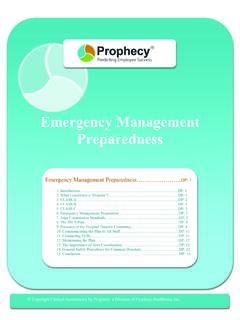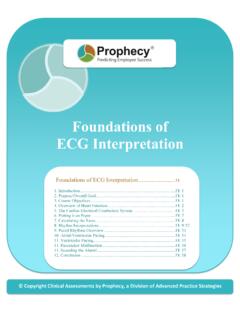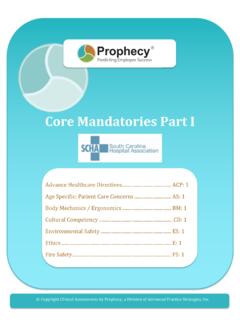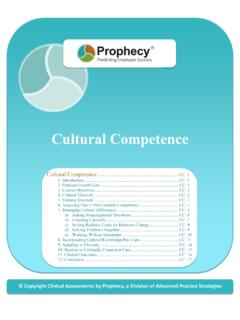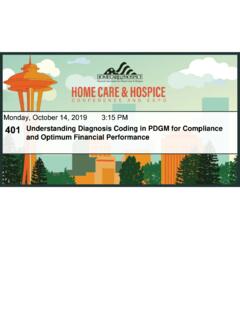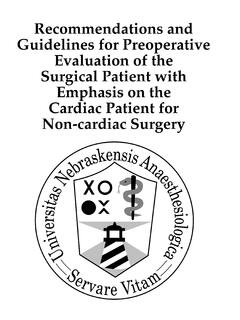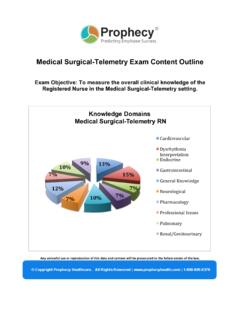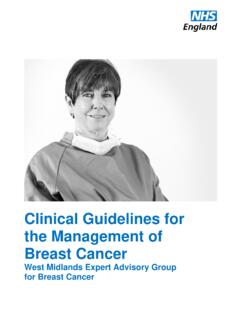Transcription of Medical Surgical RN Assessment Content Outline
1 2021 Relias LLC. All rights reserved. Page | 1 Medical Surgical RN Assessment Content Outline Exam Objective To measure the overall clinical knowledge of the RN working in the Medical Surgical setting. Knowledge Domains Each question in this Assessment is categorized by a cognitive level that the test taker would use to respond. These categories are: Recall: The ability to recall or recognize specific information. Application: The ability to comprehend, relate, or apply knowledge to new or changing situations. Analysis: The ability to analyze and synthesize information, determine solutions, and/or evaluate the usefulness of a solution.
2 18%18%35%14%16%Knowledge Domains: Medical Surgical RNDiseases/ConditionsAssessment and DiagnosisPatient Care and SafetyPharmacologyProfessional/EthicalMe dical Surgical RN Assessment Content Outline 2021 Relias LLC. All rights reserved. Page | 2 Content Outline I. Diseases/Conditions a. Knowledge of cardiovascular disease processes commonly seen in the med/surg setting, including but not limited to heart failure, pericarditis, valve disorders, MI, cardiomyopathy, etc., and the interventions used to treat such issues and how to assess their effectiveness. b. Knowledge of pulmonary disease processes commonly seen in the med/surg setting, including but not limited to COPD, pneumonia, asthma, PE, TB, bronchitis, emphysema, lung cancer, etc.
3 , and the interventions used to treat such issues and assess their effectiveness. c. Knowledge of neurological disease processes commonly seen in the med/surg setting, including but not limited to CVA, traumatic brain injury, TIA, Parkinson's disease , seizures, etc., and the interventions used to treat such issues and how to assess their effectiveness. d. Knowledge of gastrointestinal disease processes commonly seen in the med/surg setting, including but not limited to small bowel obstruction, GI bleed, appendicitis, gastroenteritis, liver disease , pancreatitis etc., the interventions used to treat such conditions, and how to assess their effectiveness.
4 E. Knowledge of musculoskeletal disease processes and conditions commonly seen in the med/surg setting, including but not limited to rheumatoid arthritis, joint replacements, tendonitis, fibromyalgia, etc., the interventions used to treat such conditions, and how to assess their effectiveness. f. Knowledge of endocrine disease processes commonly seen in the med/surg setting, including but not limited to diabetes, thyroid disease , adrenal insufficiency, etc., the interventions used to treat such conditions, and how to assess their effectiveness. g. Knowledge of genitourinary disease processes commonly seen in the med/surg setting, including but not limited to renal calculi, UTI, glomerulonephritis, acute/chronic kidney disease , etc.
5 , the interventions used to treat such conditions, and how to assess their effectiveness. h. Knowledge of Assessment of adequate oxygenation, including but not limited to, evaluating response, assessing capillary refill, skin color, respiratory effort and rate for signs of hypoxia; titrates oxygen in coordination with respiratory therapy based on patients' respiratory needs; monitors patient for CO2 retention; assesses for potential skin breakdown related to oxygen delivery devices. i. Knowledge of wound care management based on type of wound ( , Surgical , pressure, venous/arterial insufficiency), including but not limited to Assessment ( , infection, size, color, intact), prevention ( , pressure relief, ointments, reduction of friction/wetness), treatment ( , debridement, topicals, dressing changes), documentation, and consulting specialist or provider when warranted.
6 Medical Surgical RN Assessment Content Outline 2021 Relias LLC. All rights reserved. Page | 3 II. Assessment and Diagnosis a. Knowledge of obtaining personal and family history information needed to best inform the development of a comprehensive plan of care, including but not limited to current Medical complaints/concerns; sensory, mobility, and functional status; diagnoses; past Medical and Surgical experiences; allergies, vaccinations, medications (including supplements, herbals, and OTC meds), and presence of advance directive. b. Knowledge of how to assess for nutritional intake problems for at-risk patients, including but not limited to, those with tube-feeding, TPN, lipids, altered GI status, or other problems that warrant the need for consultation with a dietitian, and when to initiate such referrals.
7 C. Knowledge of normal and abnormal vital sign values, including blood pressure, pulse, respirations, and temperature while considering age, Medical condition, pharmacology, etc., and interventions to treat. d. Knowledge of techniques and tools for assessing pain including, but not limited to, physical Assessment ( , respiratory status, behavior, blood pressure), interviews ( , location, type, onset, radiation, and intensity) and pain scales ( , numeric pain scales, Wong-Baker faces scale, PAINAD) for the cognitively or language impaired patient. e. Knowledge of behavioral and physical signs and symptoms associated with pain, including, but not limited to grimacing, moaning, groaning, crying, restlessness, agitation, guarding, labored breathing, disrupted sleep patterns, increased respiratory rate, and increased blood pressure.
8 F. Knowledge of normal and abnormal results of diagnostic tests, common protocols in treatment, and when to report critical values to the provider including but not limited to those in laboratory ( , hematology, chemistry, microbiology, pathology), radiology ( , X-ray, CT, MRI, US, nuclear medicine), cardiac diagnostics ( , ECG, echo, stress tests). g. Knowledge of techniques for formulating an effective and holistic nursing plan of care including but not limited to, how to initiate, maintain, and revise the plan of care, address diverse patient preferences based on physical Assessment findings, patient history, and include input from the patient and family (shared decision making), and cultural and religious preferences.
9 H. Knowledge of techniques for assessing patient and family educational needs for achieving health goals, including but not limited to, disease processes, medications, therapies, procedures, safety and preventive measures, nutrition, lifestyle, healthy coping mechanisms, and comfort options. i. Knowledge of patient signs that indicate a need for basic life support per BLS guidelines ( , American Heart Association) and techniques and algorithms used ( , pulse check, chest compressions, ventilation, one-way valve mask, use of AED, Heimlich maneuver). Medical Surgical RN Assessment Content Outline 2021 Relias LLC. All rights reserved. Page | 4 III.
10 Patient Care and Safety a. Knowledge of common nursing interventions used to treat abnormal Assessment findings, including but not limited to raising the head of bed during periods of dyspnea or increased intracranial pressure (ICP), elevating lower extremities when edema is present, encouraging ambulation, utilizing therapeutic communication techniques to encourage patient verbalization of feelings, etc. b. Knowledge of resources and interventions when a patient experiences a change in condition, including but not limited to consulting clinicians, rapid response teams, initiating standing orders ( , chest pain protocol, apply oxygen), stroke alert, and emergency codes.


